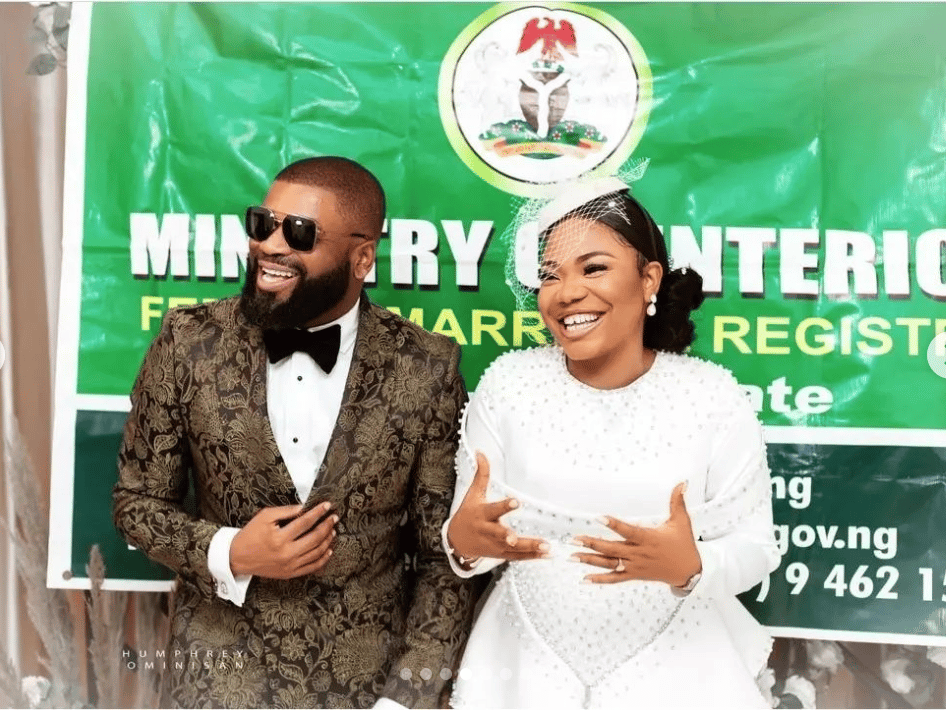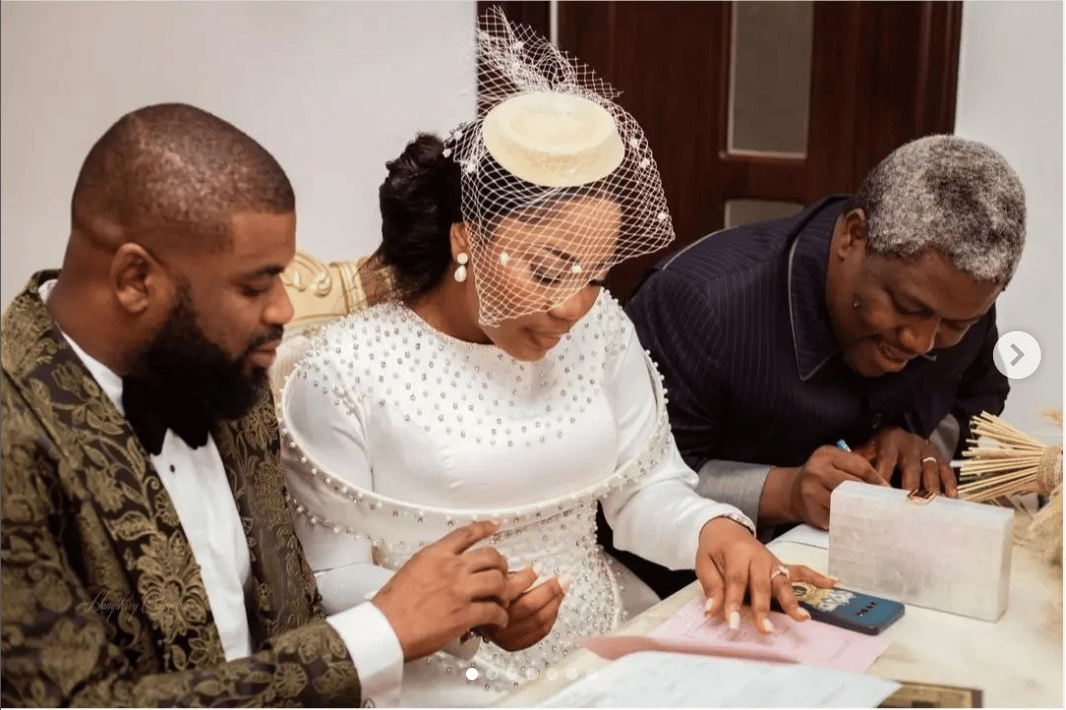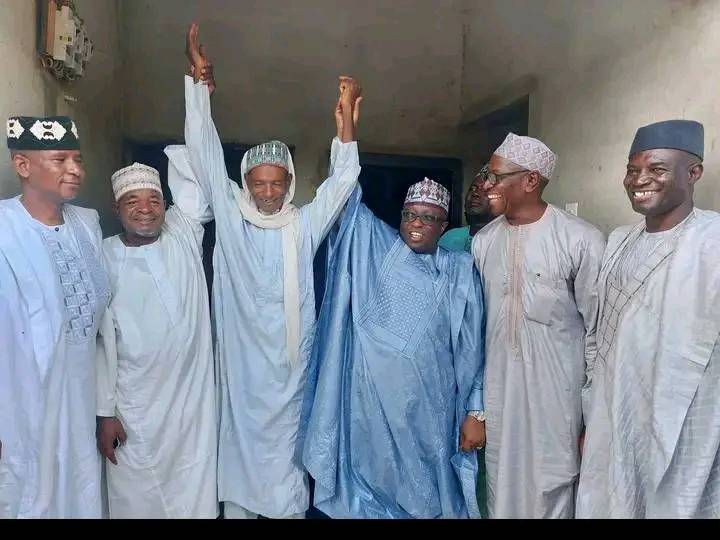“Ko ko Ko. Pon Pon, Pon. . Helloo oh”
“Who be dat?”
“Na me oh?”
“Who be na me? You don’t know your own name? I say who dey there? ”
“Na me, FEDECO”
“FEDECO? Which FEDECO? Where you from come?”
“Open door my friend…Or I break down this door now. You drink, you no know my voice again?. Lagos don turn your head? I say na FEDECO dey for door, you dey ask question?”
“Oh, bros., no vex. You know say the kin Nigeria we dey so, person suppose take caution. Anybody can just come to your door and call a known name, you open door, dem go kidnap you.”
“Don’t talk like that. Nobody can kidnap you. Have you forgotten that you are the great grandson of the greatest witch of your mother’s kingdom and the chosen spirit on your father’s side who fought the British to a standstill in the battle of… Don’t worry. I forget the battle now but I remember the story…”
“Bros, you are welcome. In this neighbourhood, people don’t talk about spirts, witchcraft and old kingdoms. I am glad to see you, Uncle..?”
“So you now know your Uncle FEDECO? You boys think some of us old folks don’t know what is going on. But we do. You met me in this Lagos. I am the Chairman of the Village Association in this town. You don’t come to my house. I decided today to come and visit you. That is how an elder behaves. Where is your wife? Where are your children? You people think you know the world, but you don’t know the world. I, your Uncle… I have decided to visit you today just to check on you. Give me something first to welcome me.”
“What do you want Uncle? I am sure I can make it available.”
“What do I want? Hmmm. Give me bush meat pepper soup! Send your people now and get me bushmeat. You can’t have money in this family and somebody cannot chop pepper soup on top of your head. My sister no born onoder pickin. My friend, bring bush meat pepper soup.”
“Brother, please, no bush meat in this house. We don’t eat pepper soup here. Let them bring you cold water and beer first. As for bush meat, no no, no. There is Monkey Pox in town. Many countries that have been non-endemic are now endemic, all the way to South America and Continental Europe. Here in Nigeria, where monkey pox is endemic, there have been over 473 cases in 27 states, 172 have been confirmed, six deaths have been reported, and that is the highest rate in this country in 6 years. Bros, you cannot eat bush meat. I can offer you any other thing.”
“What kind of monkey talk is that? Is every bush meat monkey?”
“The experts are talking about animal to human transmission that has now become human to human transmission.”
“That is white man’s talk. That one no dey here. Bush meat. Make dem boil am well well, put maggi, pepper, and all dem dem things make man chop fill belle. Once you burn am, pepper am well, all the virus wey dey the bodi go settle for stomach, na toilet everything dey go so oh.”
“Bros, let’s be serious. I think all of us should be serious. This was how Nigerians made light of Ebola virus. This is how we continue to joke with COVID-19, and yet many have died. And now everyone is treating monkey pox as a joke. Nobody is even listening.”
“My sister’s son, nobody will listen. You dey hear me? Nobody trusts these our leaders. This is how they will always come up with one problem or the other to adjust budget and provide allocation for their pockets. Do you know how many people became billionaires because of COVID? That one has gone down now, so na monkey pox be next? The next thing you will hear is that the budget has to be reviewed to accommodate monkey pox. They say it has reached 27 states. Have you seen anyone with monkey pox? Very soon, it will reach 36 states and the FCT and you will not see any evidence. The real monkey pox, they will not address, na fake dem go dey pursue”
“This is not fake bros. It is real. We are talking science.”
“I agree. You know I am not dumb. I know there is monkey pox, but is it as serious a problem? Yes, I think it is. Should it be addressed? Yes, my mind tells me so. The big problem is that the monkey pox in Nigeria is being misdiagnosed. They are looking for warts and lesions on people’s skins and talking about consumption of bush meat, and animal to human, human to human transmission. If you want to hear me, they should look at the Nigerian economy. That is where we need treatment, and the need to save the people.”
“I don’t get it”
“What don’t you get? Can’t you see, feel, sense, experience, touch the contagious, transmissible monkey pox in the Nigerian economy?”
“Monkey pox is a medical term. The economy is different.”
“You think I am dumb? And I am saying to you that I understand everything perfectly. The Nigerian economy is a monkey pox economy. Go and think about it deeply. You may not die really, because monkey pox doesn’t have a high fatality rate, but you can spread it through contact, exchange of body fluids. Look at how we are spreading poverty and agony in Nigeria from one sector to another.”
“I am lost”
“You are not lost. Let me tell you. Inflation is now 19.64 % in Nigeria. Food inflation is 20.02%. Many families can no longer eat bread, or buy tomatoes, or prepare a decent pot of soup. The last time I ate bush meat pepper soup was more than a year ago. I specifically asked for it but instead of you telling me that the country hard, ground no level, pocket empty, and I will understand, you started giving lectures on monkey pox. You think I am stupid? I know even rich people are feeling the monkey pox in this economy. The rich are crying. They can’t get foreign exchange to run their businesses. Airline operators are weeping. Foreign airlines are saying Nigeria is no longer an enabling business environment. Airline Operators of Nigeria (the local investors) are saying they will shut down. Have you not noticed that even young men do not want to marry anymore? The only girls who still get husbands in Nigeria today are the ones from rich homes. Rich men’s daughters have become insurance covers. If you are from a poor home, you are on your own. Nigeria’s social dynamics is changing.”
“It is basic social dynamics, sir. Human beings will adjust to new realities”
“You are talking textbook. My sister, your mother, is far more practical. I think the problem in this country is not just too much learning by people like you who study abroad at your parents’ expense and then you come back and start pushing ideas and theories that belong to a different society. The big problem is that we have an army of illiterates who grab political power, and have nothing to offer other than the fact that that they are in power. The only luck we have is that the Nigerian people have not yet taken to the streets out of frustration as people have done in Sierra Leone, Sri Lanka, Ghana and other parts of the world.”
“Well, that is the point. The world is passing through a difficult season. All this shall come to pass. My daily work requires me to have a balanced view of issues. I am an intelligence analyst, on a daily basis, guiding senior personnel and institutions.”
“Then tell them, we are not seeing enough intelligence in how this place called Nigeria is managed. Your own Uncle cannot eat bush meat pepper soup? He cannot travel by air anymore? Even to go by train or road is wahala? Bachelors have stopped looking for wives? Go to marriage registries across the country, the crowd has reduced. Did we offend God?”
“That is not a problem. We are too many in any case. Nigeria has a population problem. We can’t keep condemning everything.”
“People have a right to marry.”
“Then they should marry reasonably. Bros, you see that my neighbour. You once met him.. He has just one wife and two children. His gateman has four wives and 12 children. How much is his salary? I often walk across to settle quarrels between my neighbour and his wife. But his gateman with his army of dependents living in another man’s compound, you will never hear their voice. They seem to be happy. The owner of the building is in distress. He even threatened to abandon his wife and children. I had to advise him not to do so. Otherwise, his gate man will take over the entire house.”
“You want to hear me? Your neighbour is a stupid man. I pray you don’t end up like him. Me and you go talk dat one later. People like you go and marry these women and turn them into competitors as if you are running an Olympic race and you still want to be a man. When the women begin to show you, instead of you addressing the matter, you would decide to relocate abroad. You become woman wrapper. Idiot-husband. Ode somebody. Efulefu man. But your gatemen, drivers and cooks are the real men. They collect your money, steal from you, borrow from you, live in your compound and they live better. But you – big man! - you can’t control one woman.”
“But you must admit that has nothing to do with your monkey pox theory, bros”.
“Everything is interconnected”
“I don’t think so”
“Wait. Wait. Wait. I have not talked about the strike by university workers and all the unions.
“They have been treated unfairly. Government has a responsibility to be kind to the intellectual community. They are not asking for too much. Greedy, lazy National Assembly members collect so much money and other benefits, the intellectuals who help to build Nigeria’s skills flow and intellectual base are treated shabbily, paid peanuts and asked to go to hell. What is worse, government is adopting a divide and rule strategy, playing non-academic staff against academics. I like the fact that the university teachers are saying they will not move an inch. They have the right to protest.”
“Oh, God. The kind of books you people read. Are you aware that government is already thinking of banning the Academic Staff Union of Universities (ASUU)? They will ban them now and nothing will happen. They already have an alternative – the CONUA. The Federal Government will not only ban ASUU, they will not pay them for work not done. Many of those your so-called intellectuals will beg by the time they can’t pay their children’s school fees and their wives and in-laws begin to mock them. I even hear some lecturers are beginning to sell this and that. One female lecturer now sells puff-puff. Another lecturer in the North is doing Mai Shayi work. I know one in my neighbourhood who follows his wife to the shop every day. He calls himself a Doctor of I don’t what. Business Administration or Accounting? The man is now a big-time shop assistant attending to customers in his wife’s pepper soup joint! When Nigeria happens to you, you will learn your lesson the hard way…Look, I am saying all of this because I don’t want you to be like them…”
“What is wrong is wrong. The universities teachers have a case…Even if the Non-Academic staff return to the campuses this week, without the teachers, there will be no students. Even asking students to sue their lecturers makes no sense. Government cannot simply choose to be callous towards a strategic segment of the Nigerian population. When you shut down the country’s education system at the highest level, you shut down the future of the entire country. That is the issue. Many bright academics are leaving the education sector. Terrible brain-drain. Since 2017, ASUU has been on strike for a total of 578 days. In 2020, for 270 days, In 2022, that is, this year, 189 days as of today.”
“The lecturers just want money. Everybody wants money to hedge inflation. Government should just give them enough money to meet their level of greed, and you’d see there would be peace. No be Nigeria we dey?”
“No. This is not about money. That is in fact why ASUU has refused to cave in.”
“Look, bobo, in this country, everything is about money. Those Union of Electricity Workers who shut down the power grid and feeders on August 17, what do you think they are looking for?... Money!”
“A lot more than that, a close analysis showed.”
“Forget analysis! Everybody is talking about crude oil theft, economic sabotage bla bla. What do you think those behind crude oil theft are looking for?.. Money!”
“Specifically, that is economic sabotage, organized crime and terrorism against the Nigerian state.”
“You can say what you like, but what I am saying is that the real problem in this country is that everybody is looking for money and struggling for survival. Nigeria today is a struggle for the survival of the fittest. This is what has happened to us. In the last eight years, values have collapsed. Life is so hard. People just want to survive. Why do you think the legislature is just so compliant? Once you give people their own share of the cake, they will be quiet. The only problem is that there isn’t enough to go round.”
“Looks like in this country, nobody is ready to listen. Maybe I should just return to the UK or the States.”
“You want to Japa? No. No. No. That’s cowardice. Who do you think will look after my sister if you too run away? All your siblings are already abroad. You are the only one here. Don’t mind me, we are just having a discussion. To tell you the truth, this is still the best country in the world oh, with all our wahala. You know you and I are intelligent analysts. Please don’t tell my sister we even had this discussion, I beg. Wey my bush meat pepper soup?
“No, bros, I only have your usual beer in the fridge.”
“Bring am, bring am. Wetin I bin dey talk sef.”
























